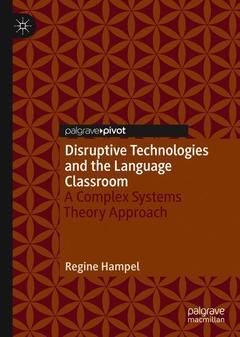Description
Disruptive Technologies and the Language Classroom, 1st ed. 2019
A Complex Systems Theory Approach
Language: English
Support: Print on demand
Description
/li>Contents
/li>Biography
/li>Comment
/li>
Although new technologies are embedded in students? lives today, there is often an assumption that their use is transparent, inconsequential, or a distraction. This book combines complex systems theory with sociocultural theory and the multimodal theory of communication, providing an innovative theoretical framework to examine how communication and meaning-making in the language classroom have developed over time, how technology impacts on meaning-making, and what the implications are for learners, teachers, institutions and policy makers. Recent studies provide evidence for the disruptive effect of technology which has resulted in a phase shift that is reshaping language education by creating new interaction patterns, allowing for multimodal communication, and introducing real-world communication into the classroom. The book proposes ways of responding to this shift before concluding that the new technologies are radically transforming the way we learn. It is likely to appeal to arange of readers, including students, academics, teachers and policy-makers.
Regine Hampel is Professor of Open and Distance Language Learning at the Open University, UK.




